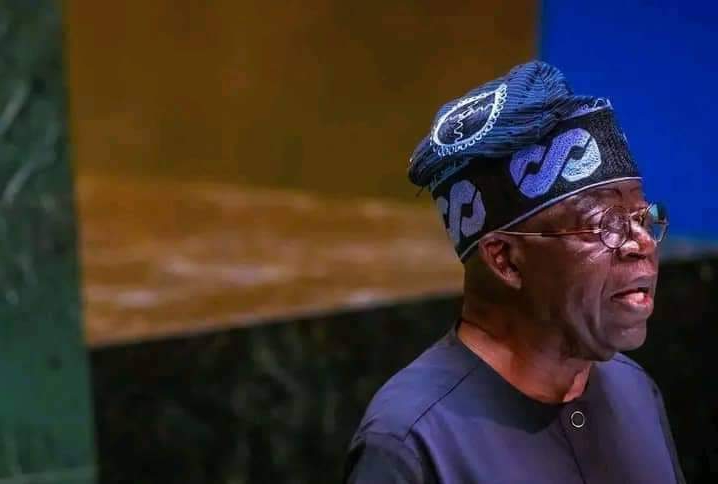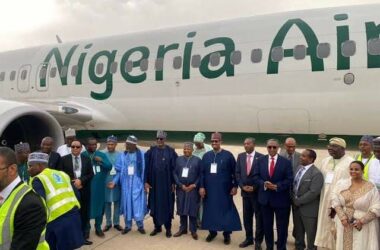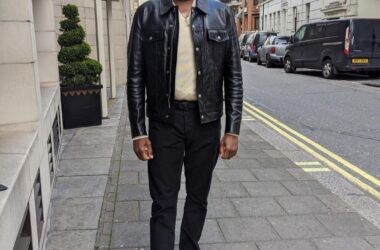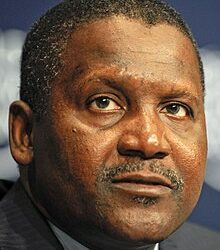The speech was neither an accusation nor a plea. It was, simply, a clarion call – a frank assessment of our nation, our Continent and our world as they are right now, but also a proposal for urgent action towards remaking them as they should be.
Not many people can remember the last time an African leader had adopted this sort of tone in addressing the community of nations. Nigerian President Bola Ahmed Tinubu’s maiden address to the 78th session of the United Nations in New York, USA was a balancing act between two rhetorical extremes characteristic of speeches delivered at this august forum by most of his Nigerian predecessors and African counterparts (and indeed by many leaders from the so-called Global South). It was devoid of the usual denunciations of neo-colonialism, imperialism and other machinations of the West as they affect the continent and its individual nations. But it was equally devoid of the tone of abject begging – for debt relief, for aid, for fairer trade practices, for preferential export policies, for reparations for past (and not so past) wrongs, etc.
Where others go to such fora to ask ‘Why? ‘ Bola Tinubu went there to say, ‘Why NOT?’
“No leader,” gushed the prominent human rights lawyer and former President of the Nigerian Bar Association, Dr. Olisa Agbakoba, SAN, “has spoken for the African continent like Tinubu did at the UN General Assembly.” Agbakoba praised the Nigerian leader for making the point that Africans did not relish the status of beggars at the mercy of the rest of the world. “Not since (Ghana’s first post-independence President) Kwame Nkrumah and his vision for a pan-African agenda for development,” said the lawyer, “has any African leader delivered a speech on behalf of all 54 nations of Africa.”
Time there was, not so long ago, when Nigeria’s voice carried greater weight than it currently does on the global stage, when our diplomats were courted in the major capitals and power centres of the globe and sought-after for their insights on contemporary global issues and even on disputes far removed from our sphere of influence, when our investments in the peace and stability of the global village (in terms both of personnel and financial contributions to international, especially UN, initiatives) were duly recognized. In line with her foreign policy, which placed Africa at its centrepiece, Nigeria spearheaded the push for the total decolonization of the continent, and the demise of white minority rule in Southern Africa – to such an extent that she was accorded the status of a ‘frontline state‘ by the anti-colonial and anti-apartheid forces of the time, and her successive UN ambassadors held the permanent chair of the Organization’s Special Committee against Apartheid until the fall of that racist policy. Closer to home, so invested was Nigeria in the restoration of peace in war-torn Liberia and Sierra Leone – committing men and materials via ECOMOG, the Monitoring Group set up by the regional group, ECOWAS to see to the resolution of the two conflicts – that a visiting US President remarked in a speech in Abuja that Nigeria (by its actions in Liberia, S/Leone and elsewhere) had “the makings of a world power.” Till date, Nigeria is one of only 5 UN member-states to hold the Presidency of the UN General Assembly on more than one occasion. Those 2 tenures – under Dr. Joseph Garba and Dr. Mohammed Bande – were remarkable for the initiatives the world body undertook in pursuit of objectives such as the Millennium Development Goals 2000, and the Sustainable Development Goals 2030.
No thanks to Nigeria’s present predicament, however, her voice on the international stage has been muted somewhat over the years, and there are those who say that Nigeria’s diplomatic vigour had been sapped by her internal tribulations, leaving a yawning gap other African nations – notably South Africa and even Rwanda – are scrambling to fill (with mixed results so far).
Tinubu’s address in New York, devoid of shrillness and oozing quiet authority, however underscored Nigeria’s natural (one might even say, divinely-appointed) role as the continent’s leader and standard-bearer. No doubt, she has fallen short on most, if not all, of the indices that such a role demands. But the President’s speech was a reminder that despite having lost its way over the years, and having been afflicted by the scourge of bad governance which, he admitted, ‘has hindered Africa’ – Nigeria hasn’t forgotten her proper role, nor has she willingly abdicated it to others. As our people would say, “Na condition wey make crayfish bend back.”
That reminder brings to mind the spirit embodied in the immortal lines from the famous poem Ullyses by the English poet Alfred, Lord Tennyson:
‘Though much is taken, much abides; and though we are not now that strength which in old days moved earth and heaven, that which we are, WE ARE. ‘
On a wide range of critical issues – from defending the supremacy of democratic governance (in the face of recent coups d’etat in the West African Sahel and in Gabon); to the battle against violent extremists; to resource justice; and to climate change, among others – Tinubu insisted that the theme of the 2023 gathering in particular (namely, Rebuilding Trust and Re-igniting Global Solidarity: Accelerating Action on the 2030 Agenda and its Sustainable Development Goals Towards Peace, Prosperity, Progress and Sustainability for All) and the overarching objectives of the United Nations in general, would have no meaningful impact unless and until Africa’s developmental priorities are at their very centre – not just for the sake of Africa and the welfare of her people, but also because it serves the long-term interest of governments, institutions and corporate organizations wherever they may be.
While admitting that Africa has suffered from a serious deficit in the quality of its political leadership and the resilience of its institutions, Tinubu nevertheless identified foreign factors such as broken promises, unfair treatment and outright exploitation as having also played a role in hampering the development of the continent. A former pro-democracy activist himself, the Nigerian President reiterated the faith of his compatriots in the democratic process and the sanctity of popular will as the best guarantor of any government’s legitimacy and the well-being of its people. To that end, he tried to put into perspective the recent wave of military takeovers in parts of West and Central Africa, saying that, far from demonstrating a widespread appetite for coups, this phenomenon is simply ‘a demand for solutions to perennial problems, including unconstitutional actions by the political elite, especially those designed to perpetuate a government or a clique in power long after they have overstayed their welcome. “Military coups are wrong,” Tinubu affirmed, “as is ANY TILTED CIVILIAN political arrangement that perpetuates injustice.”
Regarding Niger Republic in particular, the President, in his capacity as Chairman of ECOWAS, pledged to advance the negotiations aimed at re-establishing democratic governance in a manner that addresses the political and economic challenges confronting that nation, as well as counters the activities of extremists profiting from the fluidity of the situation, and welcomed the support of all who seek a peaceful and just outcome to the impasse in Niger.
President Tinubu also sought international support for West Africa’s protracted battle against violent extremists, a struggle which, he noted, has now exercebated other longstanding problems, including the opening of what he called “a dark channel of inhumane commerce’ where even men, women and children, are for sale. But he was not unmindful of the root cause of this evil phenomenon, which he identified as Africa’s dire economic situation and the bleak prospects it offers millions of its people, as a result of which, he said, thousands risk their lives braving ‘the Sahara’s hot sand and the Mediterranean’s cold depths‘ in search of a better life – even when that life means no more than wasting their talents and energies in demeaning jobs such as sweeping the floors and streets of cities in wealthier nations.
Tinubu therefore called for greater committment on the part of his African colleagues and prospective foreign partners to the dual challenge of enhancing the economies of their respective countries as well as disbanding extremist groups and arresting the flow of arms and violent people into the sub-region.
On the sometimes-subtle, sometimes-brazen exploitation of Africa’s natural resources, the President made a stark pronouncement: “The world economy owes the Democratic Republic of Congo much, but gives her very little.” This lopsided economic relationship, he said, has turned many areas of that vast and richly endowed country into “catacombs of misery”. The DRC’s bitter experience, he lamented, is replicated in resource-rich areas elsewhere in Africa, such as in Sudan, Mali, Burkina Faso, the Central African Republic, etc – where a deadly cocktail of poverty in the midst of riches, slavery (including that of children forced to work illegally in mines) and bloodshed keeps spreading and threatening the peace and security of nations – including Nigeria. But rather than being used to develop the economies of host communities and nations, Tinubu said, the proceeds of these activities are instead used to fuel even more violent enterprises. He called on UN member nations to respond to this challenge by, among others, deterring their companies and citizens from participating in this 21st replication of historical wrongs against Africa.
Turning his attention to the current conversation on climate change and its adverse (and in some places, apocalyptic) effects on lives, livelihoods and security, President Tinubu added his voice to the clamour for urgent climate action. On her part, Africa, he said, would seek, in ways both innovative and unique, to mitigate the impact of a phenomenon to which she has contributed very little, but is bearing a disproportionate brunt. Lamenting the massive loss of life in the recent disasters in Morocco and Libya, as well as the instances of climate-related tragedies in his home country, Tinubu asserted Africa’s determination to confront climate change with the required vigour, but WITHOUT jeopardizing her most fundamental socio-economic aspirations. Our continent, he said, has its own priorities, in respect of which she would welcome a wide consensus on climate action – one that also requires advanced economies to be more forthcoming with public and private sector investment for Africa’s preferred initiatives. This, he said, would go far in demonstrating that global solidarity, as far as climate action vis-a-viz sustainable development, is concerned, is real and working.
Africa’s long-standing call for a Marshall Plan-style programme of cooperation and assistance from more established economies, Tinubu maintained, was not a plea for charity. The original Marshall Plan, he recalled, was not an act of charity, either; it was borne, instead, out of an understanding that helping the countries hardest hit by the horror and destruction of World War II would accelerate their recovery and enhance their ability to contribute more robustly to the growth of the world economy – and perhaps prevent yet another conflagration. Shared wealth and shared values, the authors of the Plan believed, were the surest guarantors of peace. While acknowledging that the underlying conditions and causes of the economic challenges currently confronting Africa are different from those of post-war Europe, the Nigerian President said, “We are not asking for identical programmes and actions. What we seek is an equally firm commitment to partnership … (and) enhanced international cooperation … to achieve the 2030 Agenda and the Sustainable Development Goals.”
In response he charged African leaders to lead by example. Noting his own bold reforms (on fuel subsidy, exchange rate reevaluation, and efforts at tax reform, etc) since taking office in May this year, the President said their aim was to foster economic growth and boost investor confidence in Nigeria, promising that even more far-reaching reforms are being planned. While not unmindful of what he called ‘the transient hardship’ that these measures have caused, he described them as a necessary phase on the road to durable growth that would build the economy our people deserved.
The Nigerian President concluded his address by urging the rest of the international community to discard the unfortunate but rather common stereotype of Africa and its affairs as a problem only worthy of sympathy, at best, or contempt and exploitation, at worst. On the contrary, Africa – on so many levels – holds the key to the future of mankind and its continued existence on this blue planet. Like the rest of humanity, Tinubu said, the people of Africa are a rich tapestry of cultures, races and creeds, and a dynamic, creative and energetic people whose aspiration is “to walk the rich African soil and live under the magnificent African sky free of the wrongs of the past and clear of their associated encumbrances” within the confines of free, safe, prosperous and vibrant democratic entities.






